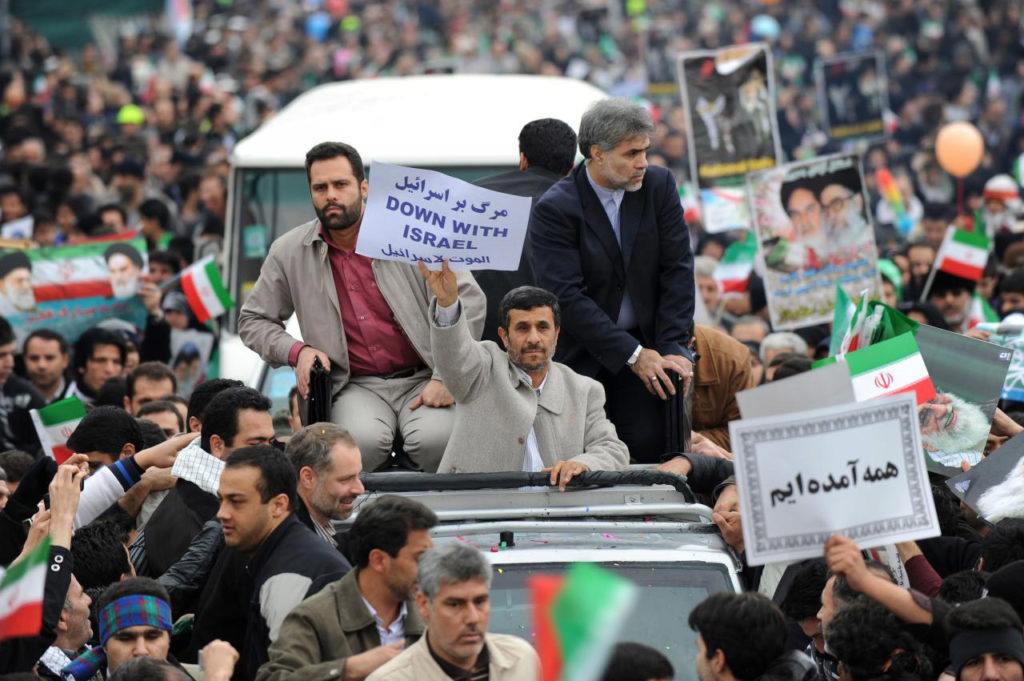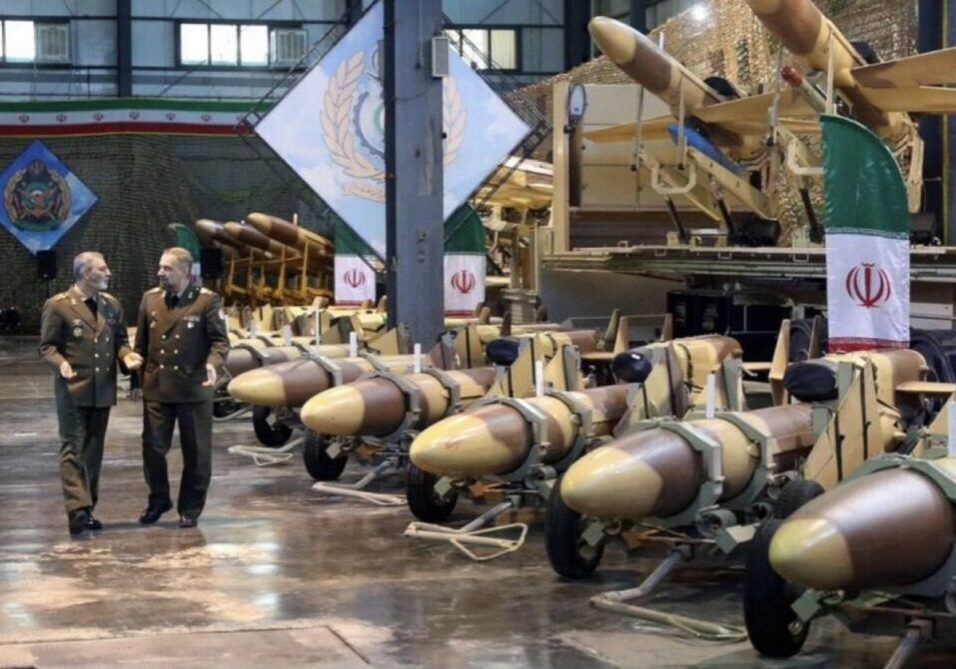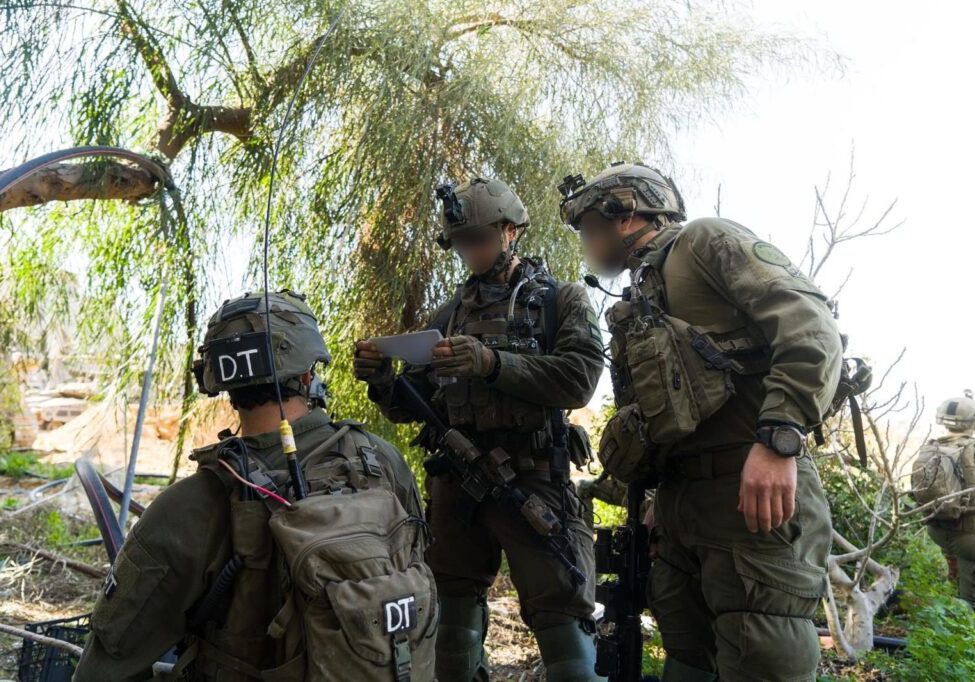Australia/Israel Review
Essay: The Blindness of the Intellectuals
Dec 20, 2011 | Alan Johnson

How too many ignore Iran’s excesses
Alan Johnson
Don’t listen to the nuclear nonsense, screamed one of the main left-wing weeklies, the New Statesman, only days after a sober and authoritative International Atomic Energy Agency (IAEA) report had laid bare Iran’s pursuit of a nuclear bomb.
Why do some of our intellectuals find it so very difficult to see dictatorship when it is clear, or to summon up the moral clarity to oppose it? This question has preoccupied me since 9/11. It led me to create the online journal Democratiya and to co-author the statement of principles for a new democratic left, The Euston Manifesto.
The Iranian revolution bamboozled some left-wingers from the start. First, where class consciousness “should” have been, there was religious fervour. Second, because its world-view split the globe into just two warring camps – reactionary exploiting nations that must be opposed and progressive exploited nations (usually also romanticised as noble and authentic) that must be supported – the left struggled to see clearly the independent history and reactionary character of Islamism, or to grasp the importance of religion (actually, of ideas per se) in the modern world.
That revolutionary Iran could be a brutal and reactionary sub-imperialist power seeking regional hegemony did not compute to many commentators. The Manichean left could not even rouse itself to oppose the brutal tyranny of the regime because, when tyranny was opposed by America, it was miraculously reborn as “the resistance”. As for promoting democracy, well, we all know that doing so is “really” a neo-colonial plot, don’t we? So goes their narrative.
These theoretical blinkers meant that many went into denial about Iran. The social theorist Michel Foucault – one of the most influential thinkers on Western campuses in the last 40 years – famously defended the Islamic revolution as an exciting new form of radical “political spirituality” and an “authentic” reaction to the corruptions of western modernity. By seeing only what he wanted to see, Foucault established the template for getting Iran wrong.
He defended the revolution, assuring us that “liberties will be respected to the extent that their usage will not harm others” while “minorities will be protected and free to live as they please on the condition that they do not injure the majority”. He carried on insisting that Political Islam was a liberating force even as it began to exclude women from public life and force them into the chador.
What mattered to Foucault was not such details, but the fact that a revolutionary enthusiasm had been reborn in the world. More recently, the global “intellectual rock star” Slavoj Zizek has praised Foucault’s approach, writing: “What matters is not the miserable reality that followed the upheavals, the bloody confrontations, the new oppressive measures, and so on, but the enthusiasm that the events in Iran stimulated in the external (western) observer, confirming his hopes in the possibility of a new form of spiritualised political collective.”
Once the Iranian revolution had been cast in this delusional and glowing half-light, all manner of nonsense became possible. Criticism of Ayatollah Khomeini’s fatwa on Salman Rushdie could be rejected as “western ethnocentrism”. Iran’s terrorist proxies, Hamas and Hezbollah, could become the “resistance” and be given a seal of approval.
Thus, in 2006 the leading American cultural theorist Judith Butler told a campus teach-in that “understanding Hamas, Hezbollah as social movements that are progressive, that are on the left, that are part of a global left, is extremely important”.
Of course, opening a school can be progressive (though if the curriculum includes eliminationist antisemitism, then not so much). But Butler does not think Hamas and Hezbollah are progressive because of their social programs.
She thinks they are left-wing because they oppose America. Iranian proxy-conducted terror against Jewish civilians, such as the massacre of 29 Jews in Buenos Aires in 1992, may tell us why Iran cannot be trusted with a rusty spoon let alone a nuclear bomb. But they carry no political weight for Butler.
Jean Bethke Elshtain – a brilliant moral and political thinker and author of the book Just War Against Terror – has explained how some intellectuals sustain these kinds of illusions and keep reality so securely at bay.
She claims that four strategies are used to bracket reality: distorting or ignoring facts, deploying twisted categories of a bygone era, taking refuge in false clarity derived from flawed analogies, and attacking the motivations of free societies such as America and Israel, while giving the benefit of every doubt to the fear societies (and their proxies) that attack the West.
These stratagems have been used in some recent articles by Mehdi Hasan, senior political editor of the New Statesman, whose work offers what the American President calls a “teachable moment”.
“There is no nuclear threat” wrote Hasan in the New Statesman on November 11, just days after the IAEA confirmed that, actually, there was. Less than a week later, in a Guardian website “Comment is Free” article titled: “If you lived in Iran, wouldn’t you want the nuclear bomb?” he doubled down on his earlier denial, penning an astonishing defence of the Iranian regime premised on the claim that there was “still no concrete evidence that Iran is building a bomb”.
Hasan advised us to ignore the IAEA report because the leaders of the Islamic Republic – from Supreme Leader Ayatollah Khamenei to the bombastic President Mahmoud Ahmadinejad – had said “their goal is only to develop a civilian nuclear programme, not atomic bombs”.
It is important to register what Hasan was proposing – to put the word of Iran’s “Supreme Leader” above the considered judgement of the IAEA. The UN-affiliated body, which is responsible for monitoring the use of nuclear power, works by consensus and is careful to maintain the trust of all the major world powers.
It speaks in measured tones and avoids even the appearance of serving a political agenda. So when it concluded in its November 8 report that “Iran has carried out activities relevant to the development of a nuclear explosive device”, and that “some activities relevant to the development of a nuclear explosive device continued after 2003, and that some may still be ongoing,” it is important to translate these lines from diplomatic-speak.
In the words of non-proliferation expert Mark Fitzpatrick, the report “destroys Iran’s pretension that its nuclear activities have been ‘purely peaceful’. In numbing detail it shows how Iran established a comprehensive programme to develop all the key technologies for an implosion-type nuclear weapon for its ballistic missiles.”
Or, as an Israeli official said, what Iran seeks is to be “the turn of a screwdriver away”. It is not there yet, but the world faces an excruciating dilemma.
The second reality-avoidance strategy involves the use of clapped-out categories developed in the 1960s. The philosopher Michael Walzer has argued that many intellectuals are hamstrung by “the third worldist doctrines of the 1960s and 1970s”.
The post-colonial theorist Gayatri Chakravorty Spivak expressed the poverty of this world-view when she argued that to support white men saving brown women from brown men is to endorse the imperialist script. In this upside-down world, solidarity with gays and lesbians in oppressed nations is attacked as “pink-washing” imperialism. Truly, you could not make this stuff up.
Thus, Hasan casts Iran as a pure victim, besieged by evil neo-colonial enemies. America is a “military threat” and Israel is a “mortal enemy” with a “history of pre-emptive aggression”.
Iran, on the other hand, is depicted as “geographically encircled, politically isolated, and feeling threatened” while the Iranians (he blurs the regime and the people, another handy lawyer’s trick) are “frightened, nervous, defensive, perhaps with good reason”.
Iran is certainly isolated. But missing from Hasan’s account of Iran’s predicament are two things: Iran’s entire record of behaviour since 1978, and the comprehensive history of international efforts to befriend this proud people, to draw its rulers into the community of nations and to persuade the regime to give up its pursuit of the nuclear bomb.
The third way to make reality conform to ideology is to use flawed analogies to avoid awkward truths. Hasan asks why, given that America and Britain claim their nuclear weapons are a deterrent that stabilise international relations, should Iran not claim the same? He adds, as if this is a credible argument: “Apparently, what is sauce for the Anglo-American goose is not sauce for the Iranian gander.”
To grasp how dangerous this argument is we need to look to Natan Sharansky. The former Soviet prisoner knew a thing or two about political appeasement and the support it got from this kind of intellectual false equivalencing. In The Case for Democracy he wrote eloquently about the importance of moral clarity on “the black-and-white line that divides free societies from fear societies”.
Without it, he warned, we get “pacifists in the West march[ing] alongside emissaries of the KGB who, posing as peace activists, undermine the efforts of the free world to defend itself against Soviet aggression”. And in a world without moral clarity we end up asking why, when imperfect, erring liberal-democratic Britain has the bomb, why a gay-hanging, women-stoning, genocide-threatening sub-imperialist theocracy like Iran should not have one too.
After all, democratic goose, dictatorial ganders – what’s the difference? As Sharansky pointed out, the end result of this intellectual malady is to turn the “deep desire for peace … into a weapon of tyranny”.
The fourth set of blinders worn by many intellectuals takes the form of a pre-emptive premise. Because the motivations of the US, UK, and Israel are assumed to be venal (Elshtain reckoned only three were admissible – imperial ambition, lust for vengeance, and hatred of the “Other,”) one never has to attend to the actual character of the regimes or forces shooting at Americans, Brits or Israelis.
This kind of thing is dignified as “structural analysis” or “critical thinking” but it often amounts to little more than conspiratorialism-lite. Thus Hasan knows what’s really going on with this Iranian business. Breathlessly, he lets us in on the deep secret:
“The driver in all this is Israel,” he says. “A former senior MI6 official tells me.”
Common to all four kinds of reality-avoidance is a bone-deep refusal to grapple with the real-world dilemmas of foreign policy.
Rather than “puzzle it through,” wrote Elshtain, too many prefer to “occupy a stance of lofty condemnation” and engage in “the verbal equivalent of a hit-and-run accident”.
For such people, politics is no longer a sphere of concrete responsibility (which would require obsessing about how we can prevent that regime getting that weapon) but a sphere for the performance of a fossilised left-wing identity.
In early December, British Foreign Secretary William Hague acted with moral clarity. By announcing to the House of Commons that the Iranian embassy in London would be closed in response to the state-sponsored assault on our embassy and, by previously deciding to sanction the Iranian Central Bank, a central artery of the regime, Hague invited the international community to end the diplomatic merry-go-round, to see Iran plain and to act, now and decisively, to confront it.
If we are to follow his lead, we must learn how to counter the intellectuals whose theoretical blinkers cause them to give succour to fear societies like Iran.
Professor Alan Johnson is a director and senior research fellow at the Britain Israel Communications and Research Centre. © Jewish Chronicle (www.thejc.com), reprinted by permission, all rights reserved.
Tags: Iran






